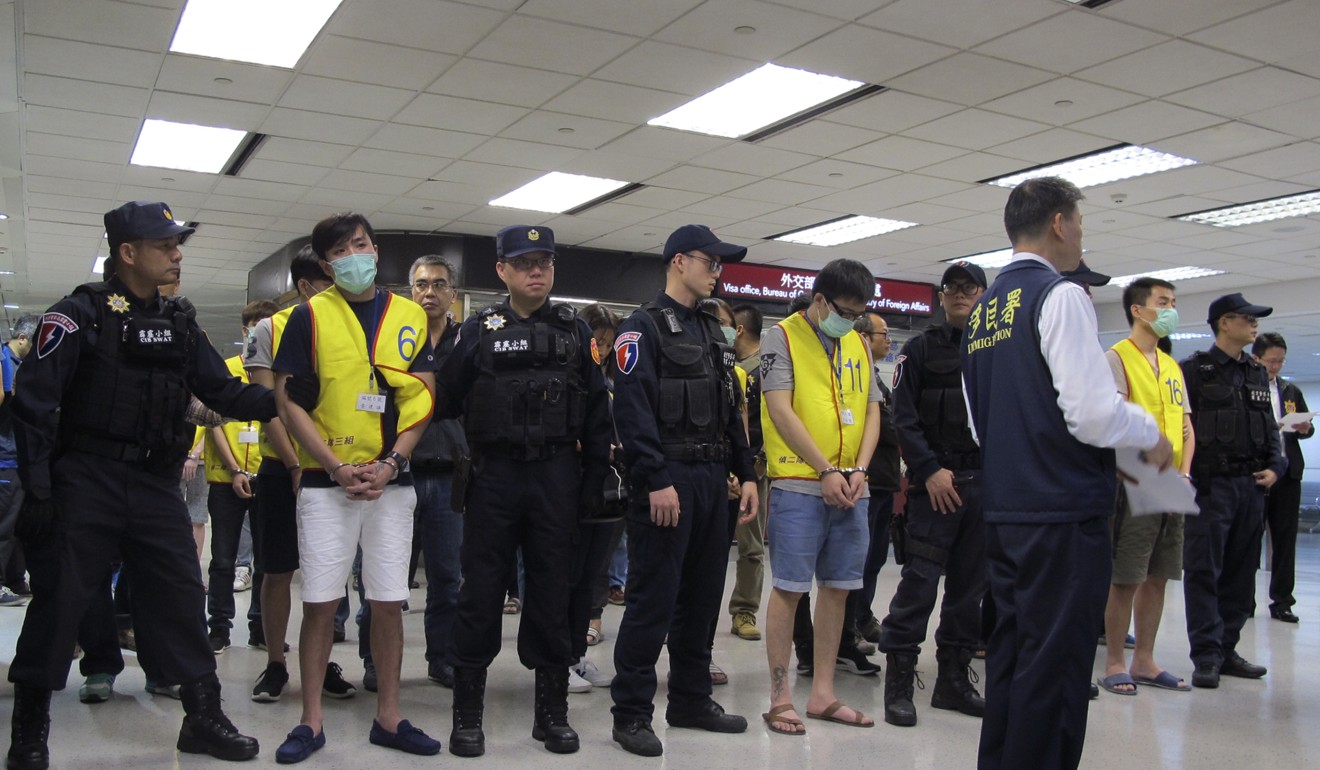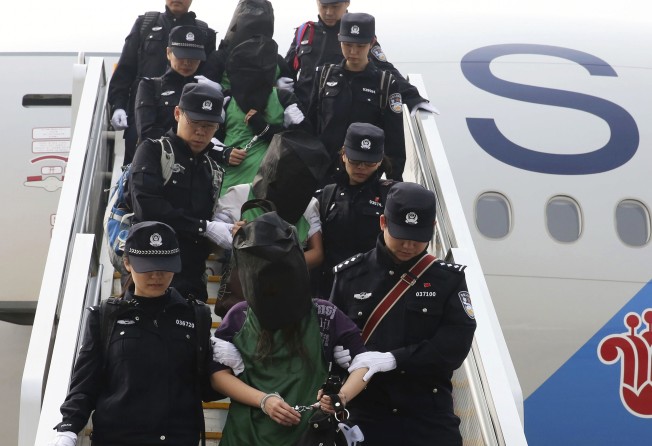
How telecom fraud is piling even more strain on Taiwan-Beijing ties

Liu Tai-ting was hoping to make money to support his child when he moved to Kenya from Taiwan and joined in what mainland Chinese authorities say was a telephone fraud scheme, posing as a government official to demand bogus payments and gain control of his victims’ bank accounts.
Liu told a court in Beijing that he made enough over two years to transfer more than US$8,000 to his ex-wife’s bank account before he was tracked down by Chinese agents and sent to mainland China to face trial for fraud.
“I apologise profusely to the victims and families,” Taiwan’s China Times newspaper quoted Liu as saying at the hearing. “After all, it was money you had struggled to save over a lifetime.”
Gangs operating from bases as far flung as Cambodia and Kenya, taking advantage of closer global connections and falling technology costs, are a growing source of tension between Beijing and the self-ruled island of Taiwan.
The two sides, which split in 1949 after a civil war, agreed in 2009 to jointly fight crime despite their lack of diplomatic ties. The phone fraud cases are straining those good intentions.
Beijing, which claims Taiwan as its territory and has no official relations with the island, broke off contacts in 2016 just months after the election of Tsai Ing-wen as Taiwan’s president. Tsai angered Beijing by rejecting its stance that the two sides are “one China” as a condition for formal dialogue. Mainland officials now refuse to answer a hotline between the two sides or even respond to faxes and emails.
“Our difficulty at the moment is that mainland China doesn’t want to work with us,” said Chan Chih-wen, an anti-fraud researcher for the Taiwan Criminal Investigation Bureau. “Because political relations aren’t too great, they don’t want to fully exchange information.”
Beijing’s Ministry of Public Security did not respond to written questions about exchanges.
The Taiwanese gangs have been operating the fraud rings for four decades, recruiting university students and others who need extra cash. They give recruits like Liu a script to memorise and pay them a commission of one to two per cent of what is stolen. The alleged fraudsters are not always aware they have been hired to commit crimes, said Chan Chih-wen, an anti-fraud researcher for the Taiwan Criminal Investigation Bureau.
“Some younger people will think, ‘Wow, I can go there and earn some money and even have fun.’ It almost feels like the operation of an international company,” Chan said.
By 2005, there were about 40,000 phone and computer fraud cases per year in Taiwan. As police there cracked down, the gangs shifted operations to Southeast Asia and then further afield to Africa, Australia, India, Japan, Latvia and Spain, often targeting mainland Chinese victims.
A network will rent a flat and set up equipment to show calls are coming from police or court phone numbers. Some callers speak with the accents of regions in China they plan to call and most fraud rings involve a handful of mainland Chinese suspects, said Liao You-lu, a criminal investigation professor at the Central Police University near Taipei.

Philippine police arrested 44 Taiwanese in 2014 who were suspected of gaining access to bank accounts by telling victims they had been used by money launderers or terrorists. Other cases have involved fraudsters posing as tax collectors or other officials.
As of September, the Taiwan Criminal Investigation Bureau said it was tracking 778 people and 58 groups with potential fraud links.
Soon before Tsai took office, Beijing began demanding that governments of countries like Kenya, Malaysia and Spain that arrest phone and computer fraud suspects send them to China where they face almost certain conviction and up to life in prison.
The Mainland Affairs Council, Taiwan’s cabinet agency responsible for China policy, says such requests so far cover 288 suspects.
In December, a court in Beijing sentenced 44 Taiwanese suspects, including Liu, to prison terms of up to 15 years after they were deported from Kenya.
Ferdinand Manook Lavin, spokesman for the Philippines’ National Bureau of Investigation, said officials were working with Taiwan and China to share data.
“We should be making the world smaller for these criminal groups,” Lavin said.
Taiwan officials protested when a court in Spain agreed in December to send 121 Taiwanese fraud suspects to mainland China. Beijing contends that since victims of the crimes are Chinese, the suspects should be tried on the mainland.